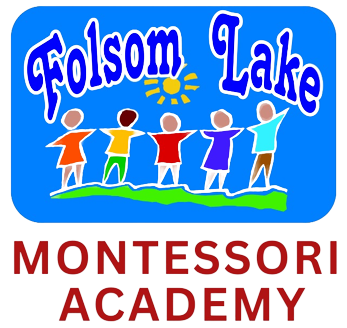Transitional Kindergarten and Kindergarten Program
Folsom Lake Montessori Academy
Transitional Kindergarten and Kindergarten Program
Folsom Lake Montessori Academy
Transitional Kindergarten and Kindergarten Program
Our Transitional Kindergarten and Kindergarten Program
Folsom Lake Montessori Transitional Kindergarten and Kindergarten Program is known for its individualized care and attention. Our primary goal is to make sure your child is safe, happy, discovering and learning all about the environment. As for you, the parents, we provide an assurance that your child is taken care of in the most responsible and beautiful learning environment. Our teachers are always around, and provide a warm, nurturing and safe environment, which caters to each and every individual in the classroom.
Transitional Kindergarten Curriculum
In a prepared environment our young fours work in five different Montessori areas including, practical life, sensorial, language, math and cultural
In practical life they gain the sense of order, develop concentration and coordination through many activities. These practices strengthen their fine motor skills which are applied in other areas of the curriculum.
The sensorial area gives opportunity to our student to be aware of the environment and refine the child senses. Our pre- K students practice classification of sizes, shapes, compositions, texture, volume, temperature, weight and taste. These practices make layers of math learning for kindergarten as are considered as non-standard measurement.
As the pre-k children are in a sensitive period of language, we closely pay attention to their conversations and encourage them to express their needs, feelings, and thoughts. Expressive language is an important aspect for this age group. Children express their thoughts by drawing them.
In the academic area of language arts our students master A-Z sounds and make words by putting them together. As we start with moveable alphabets, children will break down and spell it out. This is the foundation for spelling, making phrases and advanced reading. Montessori pre-writing activities provide practices to form alphabet letters in the right form.
Our young fours work with Montessori math materials starting with quantity, then associate them with numbers. In math each individual works on linear counting and order of numbers in different levels according to his/her pace.
Montessori cultural curriculum introduces the whole world to our young students. This area includes botany, zoology, geography, art, nature activities and earth science. The lessons are presented in concrete forms. Also different art material expands children’s’ creativity.
Kindergarten Curriculum
The children make layers of knowledge based on what they have learned in Montessori pre-school. This is the time that students gain leadership qualities by teaching younger ones. The kindergarteners are encouraged to be role models and have respect and courtesy. The practical life activities for them are more challenging and require more focus and concentration. In the sensorial area kindergarteners learn make complex structures with materials and name the shapes and solids. All of the math lessons that were given before will be continued with the decimal system, place value, skip counting, fraction and computation. Telling time and money lessons also are parts of math curriculum.
As our kindergarteners are still in a sensitive period of language, the language lessons are more extensive. They work on phonics through the pink, blue and green series of Montessori materials. They practice fluent reading through phonic books from simple to advance. Learning sight words begin in kindergarten as well. After learning how to make words, they start to develop sentences and simple punctuation. The children are encouraged to put their thoughts in the form of drawings and sentences to describe the drawing.
The kindergarteners are put in small groups to work together to practice their team work. They are encouraged to stay on task and use time effectively. Cultural lessons are presented to kindergarteners more detailed and students start to read simple non-fiction books to get used to the informational texts.
Our aim is to make them ready not only for elementary school but for life.
